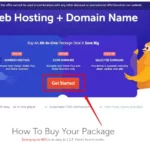Affiliate marketing has emerged as a popular and effective strategy for both businesses and individuals looking to boost their online income. At its core, affiliate marketing revolves around promoting and selling another company’s products or services in exchange for a commission. This commission-based model allows affiliates to earn money by successfully marketing products to their audience, while businesses benefit from increased sales and brand exposure without incurring the costs of traditional marketing campaigns.
In the world of digital marketing, affiliate marketing plays a significant role, helping businesses tap into new networks and expand their reach. The process typically involves third-party publishers partnering with a merchant to promote their products or services. These affiliates generate sales or web traffic for the merchant and, in return, receive a percentage of the revenue generated as a result.
With its potential for mutually beneficial gains, affiliate marketing has been embraced by numerous online business owners, bloggers, and social media influencers. By selecting the right products or services to promote and employing effective marketing strategies, affiliates can create lucrative revenue streams while providing valuable content and recommendations to their audience. This marketing model continues to evolve and adapt as businesses and affiliates alike strive for success in an increasingly competitive online landscape.
Understanding Affiliate Marketing
Concept and Mechanism
Affiliate marketing is a performance-based marketing model that allows individuals, called affiliates, to promote and sell products or services on behalf of a merchant, and earn a commission for each sale made through their promotional efforts. Typically, this involves the use of digital channels and online platforms, like websites and social media (source).
The mechanism behind affiliate marketing is simple: affiliates join an affiliate program or partner with an affiliate network, which provides them a unique tracking link or affiliate link. When someone clicks that link and makes a purchase, the affiliate earns a commission. This commission is usually a percentage of the sale price or a fixed amount (source).
Roles Involved
There are several key players in the affiliate marketing ecosystem:
- Merchant: The merchant, also known as the seller or retailer, is the owner of the product or service being promoted. They’re responsible for creating and managing affiliate programs.
- Affiliate Marketer: Also known as a publisher, the affiliate marketer is responsible for promoting the merchant’s products or services through various marketing channels. Their goal is to generate sales and earn commissions on those sales
- Affiliate Network: This is a platform that connects merchants with affiliates and manages the tracking, commission payouts, and overall administration of the affiliate program. Examples of popular affiliate networks include ClickBank, Commission Junction, and ShareASale .
- Customer: The customer is the end user who makes the purchase through the affiliate’s promotional efforts. They are essential in the ecosystem, as they drive the sales and commissions earned by affiliates.
In summary, affiliate marketing is a powerful marketing model that involves promoting and selling products or services through a network of affiliates who are compensated for their efforts. The key players involved in this process are the merchant, affiliate marketer, affiliate network, and the customer.
Getting Started with Affiliate Marketing
Choosing the Right Niche
To get started with affiliate marketing, the first step is to choose the right niche. This is important because your chosen niche will determine your target audience and the types of products you’ll promote. It’s crucial to select a niche that you are passionate about and knowledgeable in, as this will allow you to create quality content that resonates with your audience. Consider the interests and needs of your potential audience, along with the competition within the niche when making your decision.
Finding Suitable Affiliate Program
Once you have decided on a niche, the next step is to find a suitable affiliate program. There are various types of affiliate programs available, offering different products, services, and commission structures. When looking for an affiliate program, it’s essential to consider factors such as the reputation of the company, the support and tools they provide to their affiliates, and the commission rates they offer. You can research and compare different programs, or you can use affiliate networks, which act as a one-stop-shop for finding and signing up for various programs.
Creating Quality Content
With a niche and affiliate program in place, content creation becomes the core of your affiliate marketing strategy. Your content should be informative, engaging, and tailored to the needs of your target audience. You can create different types of content, such as blog posts, videos, webinars, and product reviews, to attract and retain your audience.
It’s essential to focus on developing high-quality content, as this will not only help you build trust and credibility with your audience but also increase the chances of generating conversions and earning commissions. In addition, leveraging tools like SEO optimization and keyword research can help you drive traffic to your content and increase its visibility online.
In summary, getting started with affiliate marketing requires choosing the right niche, finding a suitable affiliate program, and creating quality content that resonates with your audience. By following these steps and maintaining a consistent and dedicated approach, you can build a successful affiliate marketing business.
Monetizing Your Platforms
Monetization through Blogs
Blogs provide an excellent avenue for affiliate marketing, allowing content creators to leverage their written skills and expertise for generating income. Many bloggers choose to join reputable affiliate programs such as Amazon Associates because of the wide range of products they can promote. To maximize earnings, bloggers should focus on driving traffic to their website by creating valuable, high-quality content. Well-written articles that are informative and engaging can help attract more readers, eventually turning them into potential customers for affiliated products and services. Using proper SEO techniques can further increase visibility, enhancing organic reach and ultimately boosting revenue opportunities for the blogger.
Leveraging Social Media
Social media has become an essential promotional tool for entrepreneurs and marketers. Platforms like Facebook, Instagram, and Twitter allow affiliate marketers to reach a large audience and promote their products with ease. Affiliate marketers can share promotional content, links, and engaging posts to drive potential customers to affiliated products or websites. Social media influencers often leverage their existing follower base for this purpose, generating income through sponsored content and advertising in addition to promoting affiliate products. Combining affiliate marketing and influencer marketing strategies can result in a powerful revenue-generating framework, especially when implemented thoughtfully and authentically.
Using YouTube
YouTube offers yet another monetization opportunity for affiliate marketers. Content creators on the platform can leverage their video-making skills to build an audience and promote affiliate products. Some successful approaches include integrating product mentions in video content, creating dedicated product reviews, or showcasing relevant items within tutorials or how-to videos. YouTube’s vast audience and multimedia format provide a unique way of engaging with potential customers, showcasing the benefits of a product in both a visual and auditory manner. Like blogging and social media marketing, driving traffic and growing subscribers is critical for success as it directly impacts revenue potential. Focus on creating high-quality, engaging content as well as promoting it to the right target audience to maximize earnings from YouTube affiliate marketing.
Increasing Earnings
Driving More Traffic
One way to increase affiliate marketing earnings is to drive more traffic to your website. This can be achieved through effective search engine optimization (SEO) practices. By implementing proper SEO strategies, your brand can rank higher on search engine results pages, leading to more clicks and potential leads. Additionally, utilizing influencer marketing and engaging in guest blogging can increase brand exposure and generate more traffic to your website.
Optimizing Conversion Rates
Optimizing conversion rates is essential to grow your affiliate marketing revenue. One approach is to test different layouts and designs for your website, making it more appealing and user-friendly for visitors. By doing so, you can ensure that various elements, such as call-to-action buttons, are easy to find and navigate.
Moreover, consider offering valuable content that relates to the products or services you are promoting. Informative articles, reviews, and comparisons can encourage potential clients to make purchase decisions, increasing your sales and commissions.
Another aspect to consider is the commission rates of the products you promote. According to Statista, the affiliate marketing industry is expected to grow significantly in the coming years. Therefore, monitoring and negotiating affiliate commission rates can help enhance your earnings.
Building Email Lists
Email marketing is a crucial component of any digital marketing strategy. By building an email list, you can nurture relationships with your audience, provide them with relevant content, and promote products or services that align with their interests. This approach can ultimately lead to higher conversion rates and increased passive income through your affiliate marketing efforts.
Implementing a newsletter sign-up form on your website is one way to grow your email list. Offering exclusive content, promotions, or discounts can encourage visitors to subscribe. Once you have a solid email list, make sure to send well-designed and engaging emails that drive clicks and conversions.
In conclusion, focusing on driving traffic, optimizing conversion rates, and building email lists can significantly boost your affiliate marketing earnings. By implementing these strategies, you can effectively grow your online business and generate passive income.
Legal and Ethical Practices
Proper Disclosure Laws
The Federal Trade Commission (FTC) requires affiliate marketers to disclose their affiliate relationships to their audience when it is relevant. This means that affiliates must clearly state that they will receive a commission when users make a purchase through their referral links. Adhering to these guidelines will ensure that your affiliate marketing activities are transparent, building trust and credibility with your audience.
For example, affiliates should place a clear and conspicuous disclosure close to any referral links, indicating that they may earn a commission if users click through and make a purchase. This disclosure should be easy to understand, unambiguous, and avoid the use of confusing legalese.
Avoiding Deceptive Practices
In order to maintain ethical standards and comply with legal requirements, affiliate marketers should avoid engaging in deceptive practices. This includes making exaggerated or false claims about the products or services they promote, as these actions can damage the trust and credibility of both the affiliate and the creator. Ensuring that your marketing materials accurately represent the product being promoted will benefit your long-term success.
Affiliates should also be aware of the importance of proper cookie management. Cookies are used to track user activity and attribute affiliate commissions to the correct referral sources. It’s crucial for affiliates to respect users’ privacy by abiding by relevant cookie laws, such as GDPR in the European Union, when conducting their marketing activities.
By familiarizing themselves with the legal aspects of affiliate marketing and adhering to ethical guidelines, marketers can build a sustainable and trustworthy business that benefits both the affiliates and the creators they promote.
Advanced Strategies for Success
Developing Your Unique Selling Proposition
To stand out in the competitive world of affiliate marketing, it’s essential to develop your unique selling proposition (USP). Your USP will differentiate your brand from those of other publishers and allow you to offer something of real value to your audience. Focus on creating high-quality, engaging content that showcases not only the products you promote but also highlights your expertise and passion for the industry. A strong USP will help increase brand awareness, attract more potential customers, and increase the potential for high commission rates.
Additionally, utilizing search engine optimization (SEO) and analytics tools can help you better understand your audience’s needs and fine-tune your promotional strategies. This will ultimately drive more targeted traffic to your platform, leading to higher conversions and satisfied customers.
Long-term Strategies
Establishing long-term strategies is crucial for sustained success in affiliate marketing. Invest in building strong relationships with the brands and partners you choose to promote, as this will not only ensure consistent commissions but also open doors for future opportunities. Focus on choosing products that have a proven track record of success, as this will increase the likelihood of generating high commissions over time.
Online marketing plays a significant role in long-term strategies, and incorporating different advertising methods, such as pay-per-click campaigns and email marketing, can greatly increase your overall reach. Continuously monitoring and optimizing your promotions, based on data and customer preferences, will also help you stay ahead of the competition.
Leveraging your online presence to recommend products and services to your audience is a vital part of long-term success. By offering valuable recommendations and insights, you will build trust with your audience, leading to more conversions and higher commissions in the long run.
Exploring Affiliate Networks
Overview of Amazon Associates
Amazon Associates is one of the largest and most popular affiliate networks, making it an attractive option for many. It allows affiliates to earn a commission on sales by promoting Amazon products on their websites or social media channels. The commission rates range from 1% to 10%, depending on the product category1. The program is easy to join and use, making it suitable for beginners.
Using Clickbank
Clickbank is another well-known affiliate network that focuses on digital products, such as ebooks, courses, and software. This platform is known for high commission rates, sometimes reaching up to 75%2. Clickbank offers a simple signup process and thousands of products to promote, making it an excellent choice for those looking to monetize their content.
Features of Rakuten
Rakuten is a global affiliate marketing network that connects affiliates with top brands and products. They offer a wide range of categories, making it suitable for various niches3. Rakuten provides advanced tracking and reporting tools, as well as dedicated account management, which can be helpful for more experienced affiliates seeking to optimize their campaigns.
ShareASale and Others
ShareASale is a leading affiliate network with a diverse range of merchants and products. It offers easy-to-use tools for affiliates, such as a product data feed generator, along with robust reporting and analytics4. Additionally, there are many smaller affiliate networks, each with their unique offerings and features. Affiliates should explore and compare different networks to find the best one that suits their needs and goals.
Affiliate Marketing for Entrepreneurs
Affiliate marketing is a versatile and increasingly popular method for entrepreneurs looking to build an online business or earn additional income through their existing web presence. This marketing model operates by allowing third-party publishers to promote a merchant’s products or services in exchange for a commission on sales or web traffic generated as a result.
In the ever-growing online industry, affiliate marketing has emerged as a powerful means for entrepreneurs to generate passive income and support their primary business endeavors. The beauty of this approach is that it can be adjusted to suit any industry or niche, making it an attractive option for a wide range of entrepreneurs.
One of the key factors contributing to the success of affiliate marketing campaigns is the ability to leverage the influence of publishers and content creators. By partnering with trusted and reputable individuals or organizations, merchants can effectively reach a larger audience and build public trust in their brand. This influence often leads to increased web traffic, higher conversion rates, and ultimately, increased revenues for both the affiliate marketer and the merchant.
One of the most critical aspects of affiliate marketing for entrepreneurs is determining suitable commission rates that are fair for both parties. These rates can range from a flat fee to a percentage of the sale, depending on factors such as the product’s price, sales volume, and the level of effort required from the affiliate. When negotiating commission rates, entrepreneurs should carefully consider these factors to ensure a mutually beneficial relationship.
For many entrepreneurs, affiliate marketing serves as a lucrative side hustle that supplements their primary income. By dedicating time and resources to building organic traffic and establishing a strong presence online, entrepreneurs can position themselves as go-to sources for valuable information related to their niche. This credibility can lead to a sustainable stream of revenue, significantly improving financial stability and allowing for greater opportunities in the future.
In conclusion, affiliate marketing offers an unparalleled opportunity for entrepreneurs to monetize their web traffic, foster industry connections, and operate a successful online business. By harnessing the power of influence, choosing the right commission rates, and investing in organic growth, entrepreneurs can achieve exceptional results in today’s competitive digital landscape.
Keep in mind that adopting a confident, knowledgeable, neutral, and clear tone of voice is essential, as it will help in establishing authority and trust with your target audience. When exploring the world of affiliate marketing, entrepreneurs must approach this opportunity with determination, commitment, and a willingness to learn and adapt, empowering them to reap the rewards of a successful affiliate marketing venture.
Conclusion
Affiliate marketing offers a promising opportunity for individuals and businesses to generate passive income through promoting other people’s or company’s products. By leveraging this strategy, affiliates can participate in a multi-billion dollar industry with minimal upfront investment.
The process of affiliate marketing is straightforward: finding a product that interests you, promoting it to others, and earning a commission for each successful sale. This allows individuals to create revenue streams that can grow over time, providing a potential route to achieving financial independence.
A key challenge affiliates face is to choose the right programs and optimize their marketing strategies. This is crucial for achieving long-term success, as competition in the industry increases. Adhering to best practices and ethical marketing techniques can help improve the chances of success in this/fast-growing/ ever-changing landscape.
In summary, affiliate marketing can be a viable option for those seeking passive income and financial freedom. With the right approach, persistence, and dedication, this strategy can turn into a rewarding career or an additional revenue stream.
Frequently Asked Questions
What are the best strategies to succeed in affiliate marketing?
To succeed in affiliate marketing, it is essential to choose a niche that aligns with your interests and expertise. Research and focus on creating high-quality, valuable content that addresses the needs and desires of your target audience. Building an audience through various channels such as a blog, social media platforms, or email marketing can help increase your reach and influence. Additionally, promoting products and services with a reputable history and favorable reviews can improve your chances of success. Consistently analyze and optimize your strategies to stay ahead of the curve.
How do affiliate marketers make money?
Affiliate marketers make money by promoting products or services to their audience. When a visitor clicks on an affiliate link and completes a purchase or takes the desired action, the marketer gets a commission from the sale. This performance-based marketing method ensures that affiliates are only paid for successful conversions, making it a mutually beneficial relationship between the marketer and the advertiser.
Which companies offer the best affiliate marketing programs?
There are many companies that offer affiliate marketing programs across different industries. Some popular choices include Amazon Associates, ClickBank, and Awin. However, the best program for you will depend on your niche, audience, and preferred products or services to promote. It is crucial to research and select a program that aligns well with your business goals and target audience.
What skills are required for a successful career in affiliate marketing?
A successful career in affiliate marketing requires a diverse set of skills. Content creation and marketing expertise are essential to create engaging content and build an audience. Technical skills, such as web design and development, SEO, and data analysis, can help maximize visibility and optimize strategies. Strong communication skills are also important for networking and relationship building with affiliate managers and advertisers. Finally, a growth mindset and adaptability will aid in navigating the ever-evolving landscape of affiliate marketing.
How can beginners start learning affiliate marketing?
Beginners can start learning affiliate marketing by conducting thorough research, joining online communities, and following industry influencers. Engaging with free resources such as articles, videos, podcasts, and comprehensive guides on affiliate marketing can provide valuable insights into the essentials of this marketing channel. Additionally, consider taking structured courses or certification programs to deepen your understanding of key concepts and strategies.
What is the average salary for an affiliate marketer?
The average salary for an affiliate marketer varies depending on factors such as experience, location, and performance. As a commission-based profession, income can fluctuate greatly. Some successful affiliate marketers earn a significant income, while others might experience lesser earnings. It is important to note that achieving success in affiliate marketing typically requires dedication, persistence, and a consistent marketing strategy to build a sustainable income stream.




















Leave a comment